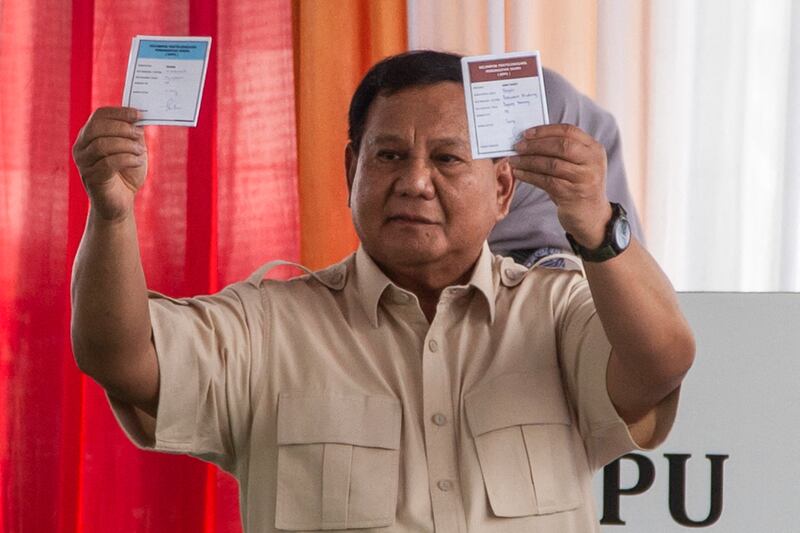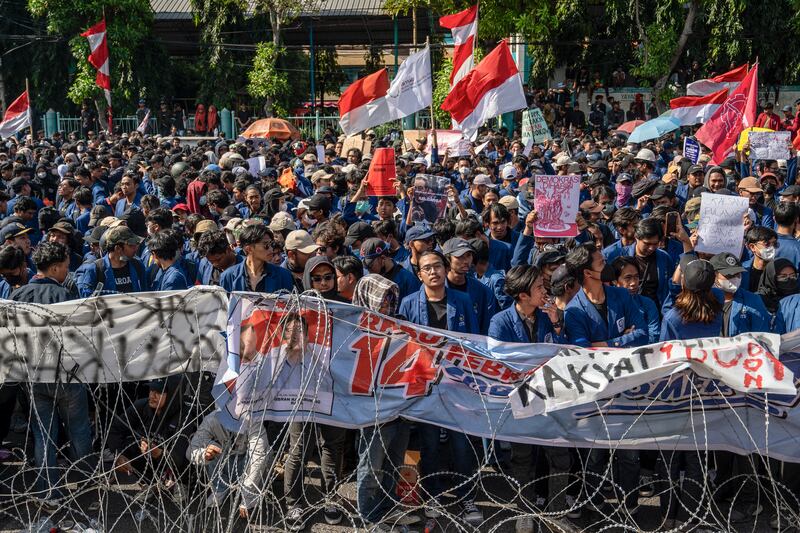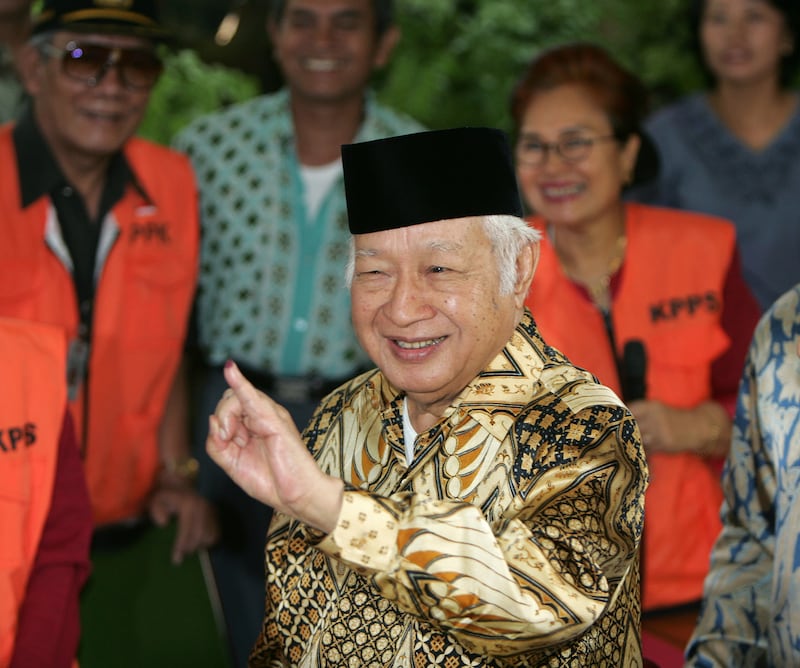Critics and the sole opposition party in Indonesia’s parliament are warning that President Prabowo Subianto’s proposal to end direct local elections harkens back to an earlier authoritarian era and threatens hard-won democratic reforms.
Prabowo’s argument that appointing rather than electing regional and local leaders would be a lot less expensive is no reason to deny the public a say on who they want formulating vital local policies in areas such as schools, health and hospitals, critics say.
Direct elections for regional and local leaders such as governors, regents and mayors have been in place since 2005 as part of the reforms instituted after the 1998 fall of Suharto, Indonesia’s longtime authoritarian president.
The Indonesian Voter Committee (TePI), an NGO engaged in election monitoring, expressed concern that a major reform aimed at decentralizing power would be undone if Prabowo’s proposal were adopted.
“Direct elections were introduced to avoid the political deals that dominated local councils in the past. Leaders selected by the councils often didn’t truly represent the people’s needs,” Jeirry Sumampow, a coordinator for TePI, told BenarNews.
“We’ve had direct elections for almost 20 years. Changing this isn’t good for democracy. The cost should not be used as an excuse.”
Regional and local observers have expressed fears that democratic practices would be whittled away under Prabowo, a former general who served under Suharto. Democracy watchers had also raised concerns about the lack of an opposition after all but one party, the PDI-P, joined Prabowo’s coalition.

Jeirry acknowledged that direct elections were expensive but the cost was a necessary investment in democracy.
According to Indonesia’s Ministry of Finance, the government spent nearly the entire 37.52 trillion rupiah (U.S. $2.4 billion) allocated for this year’s local elections, which took place on Nov. 27 across the archipelago.
Currently, local legislatures – comprising legislative council members – are voted in during the general election, and leaders for local bodies are elected in separate polls such as the one held last month.
Under the Suharto regime, regional leaders were appointed by the local councils, a system widely criticized for fostering corruption and patronage politics. Critics say this was to ensure that only his loyalists were elected.
Cyril Raoul Hakim, spokesman for the Indonesian Democratic Party of Struggle (PDI-P), the country’s largest political party, said the party hoped the president would reconsider the proposal.
“Democracy comes with costs, but having leaders chosen by the people is something essential,” Cyril told BenarNews.
The parties in Prabowo’s huge coalition have already expressed support for his proposal to appoint local leaders.

While speaking last week at an event held by the Golkar Party, a partner in his coalition, Prabowo made his pitch for the appointment of regional leaders along with a joke.
“This system is too costly, don’t you think? Just look at the faces of the winners – they seem exhausted. And the losers? Even more so,” the Indonesian president said.
“If we let local councils handle the election, it could be as efficient as in Malaysia or Singapore,” he said, suggesting that the local councils elect the governors, regents and mayors rather than citizens.
Prabowo added that the money could be better used for essential social services like food for children and improving schools’ quality, among other things.
Such a change has been attempted before, in 2014, when the House of Representatives (DPR) enacted a law to transfer the power to elect local leaders to the regional councils.
Public opposition to that law was so widespread that the then-President Susilo Bambang Yudhoyono issued a series of emergency regulations that reinstated direct elections for local leaders.
More recently, in August, huge protests met a proposed DPR bill that would have reversed a landmark Constitutional Court ruling on regional election rules that was hailed as a victory for democracy.
The DPR swiftly dropped its hastily drafted proposed bill in the face of widespread protests.
RELATED STORIES
[ Families of rights abuse victims condemn proposal to name Suharto Indonesian heroOpens in new window ]
For now, though, a DPR member said that Prabowo’s proposal to scrap regional leaders’ direct election would be considered as part of planned revisions of the country’s political laws.
“This is an important issue that we will take into account in our work,” the local news website Kompas.com quoted Rifqi as saying on Monday.
Rifqi, a member of Nasdem, a party in Prabowo’s coalition, said any changes to the election system should ensure an end to practices like the buying of votes.

Experts believe there are better ways to address the financial burden of elections and reform them to avoid problems such as vote buying without dismantling direct voting.
Titi Anggraini, a legal scholar at the University of Indonesia, suggested that lawmakers focus on reforming campaign financing and improving the integrity of political parties and election organizers.
“Efficiency can also be achieved by implementing stricter regulations for transparency and accountability in campaign financing, which could reduce the illegal funds spent by political parties and candidates.”
Arya Fernandes, a political researcher at the Centre for Strategic and International Studies in Jakarta, acknowledged that direct elections had not been without shortcomings.
Arya said that a better system could be created by reforming the way candidates are nominated within the regional legislatures, such as implementing a more transparent and competitive nomination process.
“Candidates with money or political dynasties are often chosen, not necessarily the most qualified or visionary leaders,” he told BenarNews.
“We need to ensure that we don’t fall back into a system that favors the elites and excludes the public.”
